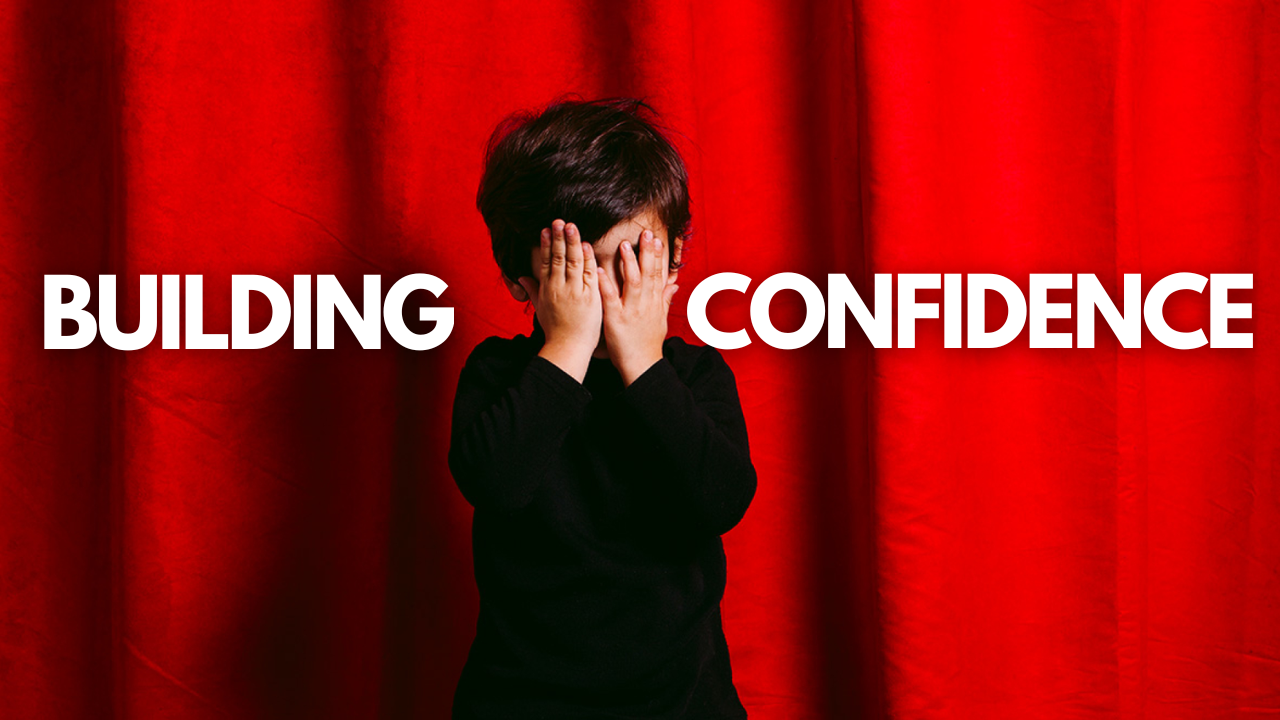What is one thing that is common for musicians and singers? Dreams about fame? No. What if we told you that it’s the desire to build more confidence in their performance? Do you feel like you also share this desire with them? Then grab our top 13 tips that will help you feel more comfortable on stage and allow you to give the best performance.
Tip #1: Be Prepared
Feeling confident on stage is impossible without preparation. So you have to practice. A lot. The more prepared you are, the more comfortable you feel on stage. Preparation is all about muscle memory. Even if something unexpected happens during performance that you haven’t foreseen, your body and your voice will lead you forward, taking you out of the discomfort. Rehearse your piece before the actual day of performance until you feel secure with every note you play or sing. Know your material inside and out and you will have nothing to worry about.
Tip #2: Visualize Your Success
This is useful if you're going for an audition, competition or just planning to play your first concert with the band. Stop imagining the worst outcomes, and instead, focus in your imagination on every step of your routine with the best possible outcome. Imagine your perfect routine in detail: how you prepare, how you feel on the stage, how you perform, and how successfully you finish. Imagine yourself on stage, how you will sit behind the drum kit or play the piano, what you are wearing, what you hear and see, and smell. This mental rehearsal will help you feel more prepared and confident.

Tip #3: Stay Grounded
Each time when you feel nervous you may feel butterflies in your stomach or trembling legs, or weak knees. This is always accompanied by a fast heartbeat, which races faster and faster. What you may also experience is the problem with breathing. The first thing you should do is to ground your breath and ground yourself to calm down your heartbeat. Take deep controlled breaths. Stand up and relax your belly, imagining that you’re sending the breath down to your belly button. Of course it doesn’t actually go there, because it goes to your lungs, but if you’re imagining it like that you will be able to take a deep breath. You can also breathe in four counts, then hold your breath in four counts and breathe out in six counts.
Tip #4: Focus on the Story that You’re Telling, not on Yourself
When you’re performing it’s not about thinking about how to take a perfect deep breath or play a long note, it’s about the story you’re communicating through the piece or the song. Leave techniques for rehearsal rooms. On stage, you need to convey the character of the song, its emotion through your instrument or voice to the audience. You should focus on putting the energy into delivering the message. Instead of imagining the worst scenarios, you should be present in the moment and then everything that happens will serve this moment. This perspective will help you forget about nervousness and stay more confident on stage.
Tip #5: Start Small
As a beginner you are likely to feel a lack of confidence because of the fear of performing in front of people. You may think about them judging or disliking you. It’s a common thing for beginner musicians, but as you develop your technique and just keep playing your flute or guitar, you will gradually overcome it. And if you feel nervous at the thought of playing or singing in front of the big audience, start with a small one. Do it in front of a couple of friends or a family. It should be the people you feel safe around. It will help you get used to what it’s like to perform in front of people, being nervous, and gradually you will feel more comfortable with a bigger crowd.
Tip #6: Think of it not as Nervousness but Excitement
Both when we’re nervous and excited our body experiences the same sensations. The difference is only in how we call it. So, the next time when you are overwhelmed by emotions because of the upcoming gig and you feel these sensations, think about it not as nervousness but excitement. It will help you completely reshape the way you see the situation.
Tip #7: Develop a Pre-Show Ritual
Having a ritual routine before going on stage with an orchestral string ensemble or a band can calm your nerves and get you into the right mindset. As a singer you can do some vocal warmups, as a musician playing any instrument, you can do stretching, deep breathing, or even spend some time alone. This ritual will signal your brain that it’s time to shine.
Tip #8: Practice Performing
There’s a difference between practicing performing and rehearsing. During rehearsals you refine your craft, however when practicing performance you pay attention to how you present yourself on stage. Perform in front of the mirror and observe your posture, movements with your instrument, and engagement with the audience.

Tip #9: Dress in What You Like
Wear something you feel good in to feel more confident in front of the crowd. Choose outfits that align with your style, setting, and your stage persona. This will help you feel strong, stylish, or unique. However, when dressing in beautiful clothes, ensure if it also feels comfortable, because comfort matters. When you feel uncomfortable it may distract you and prevent you from being in the moment.
Tip #10: Celebrate Every Small Victory
After each performance, take time to acknowledge what you achieved. Don’t underestimate yourself. Maybe during your recent performance you hit a difficult note or played in the flow from the beginning till the end of the piece. Celebrate these small wins as they help you reinforce your sense of confidence. Watch recorded videos with you and notice things that you did well. You may also see things that need some improvement, but it’s okay. Over time you will also refine them and see real progress.
Tip #11: Learn from the Professionals
Use live videos of your favourite bands or ensembles not only for inspiration but as an educational material. When watching your favourite artists, analyze their body language, audience engagement, and how they handle mistakes if any happen. You can notice that no one is perfect, and even experienced performers can play a wrong note, but they keep going. This will help you realize that confidence comes not from being flawless but from being authentic.
Tip #12: Connect with Your Audience
Try to see the audience not as people who will criticize you but those who want to enjoy your music. Make eye contact, share a genuine smile, and try to make a connection. Sometimes it’s even useful to admit you’re nervous, sharing your true feelings with people. They will see you as more human and feel more connected to you.
Tip #13: Accept The Mistakes
Allow yourself to make mistakes and treat them as a natural process. Even the artists who you admire make mistakes. Everyone makes mistakes, but the difference lies in how other artists react to them. Don’t panic or stop if you play a wrong note or forget a lyric line. People can even not notice minor mistakes unless you draw attention to them. Once you allow yourself to make mistakes and start to see them as part of the performance process, you will feel more relaxed and confident on stage.
Conclusion
Confidence on stage is an achievable goal if you approach it properly. Be patient and try to step out of fear. Take time to prepare, practice, and train your mind to imagine the best outcomes. Confidence on stage isn’t about being fearless or flawless — it’s about pushing forward despite the fear. Start with small audiences and acknowledge your progress, no matter how small it is.
Would you like more tips? Check out our article on Time Management Tips for Musicians.
Take advantage of our special offers to buy accessories for musical instruments at affordable prices.




 https://kgumusic.com/pages/about-us
https://kgumusic.com/pages/about-us